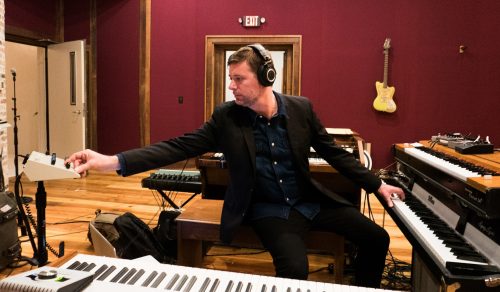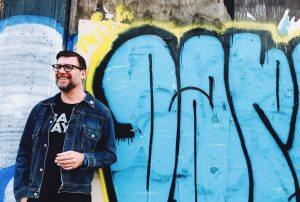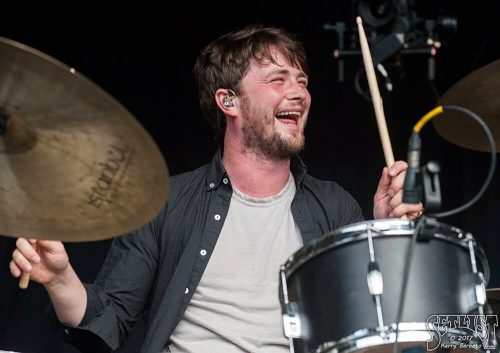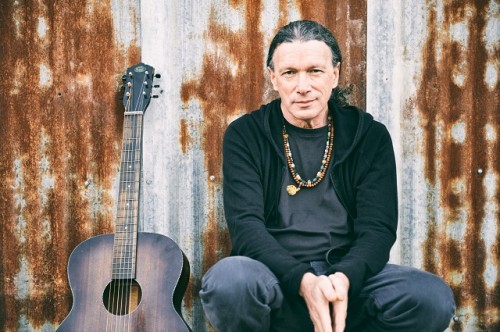Keyboard whiz Robert Walter has been grooving at the heart of the jazz-rock world for more than two decades, leading his own group Robert Walter’s 20th Congress, co-founding the innovative funksters The Greyboy Allstars and most recently hooking up with Phish bassist Mike Gordon in Gordon’s touring and recording group.
With experimentation and improvisation the norm for Walter, he ventured even farther “out there” for his new studio album with 20th Congress — beyond the gravitational shackles of Earth, even.
“Particularly because I write instrumental music and I’m a big fan of music — I collect records and I’m into the history of American music and a lot of my career is based upon by influences, either trying to emulate someone particular or some genre in particular or combining multiple genres in an interesting way,” Walter explains of his mindset behind “Spacesuit,” released Sept. 21, “I just started looking at art and music in different ways and what are the classic ways of finding instrumentation from nature or things like that, beyond things that are strictly referential to other music. And instead of finding something like nature I went to other art, like science fiction movies.”
The futuristic soundscapes on the album do not tell a story in the literal sense, Walter says, but instead form “sort of a broad, cinematic idea.” Looking to the silver screen for sonic inspiration is nothing new for Walter, who also works with noted film and TV composer Michael Andrews (aka Walter’s Greyboy bandmate Elgin Park) on film scores.
On-stage improvisation is another crucial influence for Walter — even in the studio.
“Yeah, definitely,” he says. “It’s sort of a chicken-or-egg situation because at this point I’m always writing as vehicles for improvisation, then from playing a bunch of gigs, it’s like ‘Remember what we got into the other night?’ and then writing based on what you played live. It’s kind of a big loop.”
That is not to say his recording process is entirely unscripted.
“I make charts and I demo it, sort of to audition a sonic palette. Much like a jazz composition, it’s still just a loose framework,” shares the Los Angeles-based musician. “Let’s play this and then let’s try to forget what that is. Sometimes they get played more literally like I wrote it, or sometimes someone has a great idea and we go with that.”
Further explaining his studio approach, Walter says, “Most of my records are recorded mostly live, but I’m not a staunch traditionalist with no overdubs.”
“I like the performances to be live,” he continues. “I’m not a big fan of overdubbed solos, because you have to try to fake an interaction between the band and the soloist. To me a solo is not a thing that stands on its own, it’s the cross-talk that’s important. That said, there are exceptions, like a short solo on a pop song.”
Even on the extra-terrestrial-flavored “Spacesuit,” “most overdubs are just production glosses,” Walter says. “Sprinkling some fairy dust, or putting a tambourine on afterwards. The recorded sound is more produced and more complex, but the recording process is the same.”
Walter has known Gordon, the quirky Phish bass player and sometimes singer, since the early days of Greyboy Allstars.
“With Greyboy Allstars we started off playing in sort of a different scene, sort of a more dance-club, acid-jazz world; they were calling it at the time like a ‘DJ scene,’ ” he recalls. “And someone said, ‘I have these friends who like the Grateful Dead who would love you,’ and we started playing these other gigs, and at this time Phish was really on their rise in the ’90s.
“Occasionally someone from that band would come out when I played [Phish homebase Burlington, Vermont] with Greyboy or other groups. Mike and I would talk backstage” and the bassist invited Walter to play on the 2014 Gordon album, “Overstep.”
Walter played on the sessions but Gordon toured behind the record with a different band. After Walter played a show during a run of Phish concerts in Las Vegas, Gordon asked him to join his band.
“He’s very fearless with his creativity, which has been good for me, which is part of the reason on this album I sort of got away from being so staunch about my affiliation with a certain genre. With Mike, anything’s available. He’ll bring out pots and pans for a couple hours and see what we get out of that. He gives the band a lot of freedom.
“It’s really challenging. He doesn’t sort of have that internal…It’s not that he can’t edit himself — I tend to have the problem of already thinking something won’t work before I try it, and he’s the opposite, even on stage, which can lead to some really wild improvisations.”
Lead photo by Rene Huemer





Leave a Reply